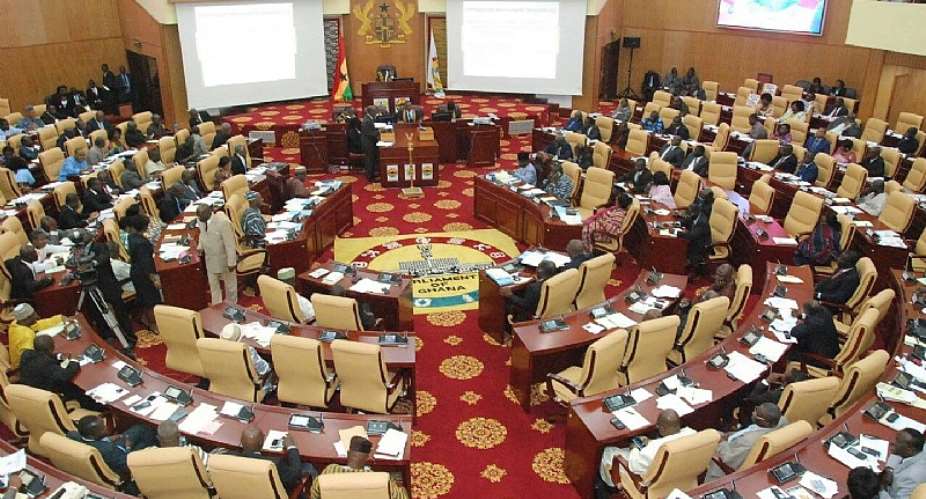Energy analysts are worried in the manner of the contractual agreement between the government and Early Power Limited to secure another emergency power plant.
The contract for the 400 megawatt power, which is estimated to cost US$953 million, is currently before Parliament for approval.
However, this has generated yet another controversy, as opponents are of the view that the deal is not tactful in value-for-money analysis.
According to Pauline Anaman, a policy analyst at Africa Centre for Energy Policy (ACEP), she said, “although a comprehensive report is yet to be compiled, suggestions that the cost for the project is significantly higher are credible.”
She revealed that, ACEP says it will soon publish a full report on the cost-benefit-analysis of the deal.
The emergency power project, which is expected to ease the country's unrelenting power crisis, involves the development, ownership, operation and management of 400MW Combined Cycle Plant to be fueled by either Liquefied Petroleum Gas (LPG) or Natural Gas (NG) for a 25-year period by Early Power Limited in Tema.
Beyond the 25-year period, the power plant transfers to a nominated entity by the Government of Ghana at a purchase price of US$1.00.
The deal, which is currently before the Mines and Energy Committee of Parliament, has also been criticised by the Minority in Parliament who raised questions about the cost.
Notwithstanding, the tough controversy that surrounded the contractual pacts of two of such projects earlier last year and this in connection with the Karpower and Ameri emergency power deals.
They were also criticised for being significantly higher than the average costs.
Some seemingly confused Ghanaians, of the fact that why are all the government to secure emergency power plants to help solve the electricity crisis we are faced with are always criticized as being very expensive by the minority in parliament and some energy policy analysts.
But, Dr. Ishmael Ackah, Energy Policy Advisor at ACEP has argued that, the Early Power deal just like the Karpower and Ameri deals, power that will be generated by US$953 million project will be too expensive for the consumers.
“We shouldn’t entangle our self. We are carrying so much risk,” he lamented in an interview with the media.
He said the country’s installed capacity of about 2,100 megawatts is sufficient for stable power supply if existing power plants are adequately fed with regular fuel supply.
Also, Kojo Poku also doubted Early Power’s ability to deliver on the deal. According to him, the company has existed barely two years and has no track record of managing such projects like the one currently seeking Parliament’s approval.
Dr. Ishmael Ackah has noted that, a preliminary assessment of the deal points to an absence of due diligence that would result in excess cost for power if the deal gets Parliamentary approval.
ACEP has therefore warned that, aspects of the power agreement that would make it mandatory for government to secure fuel for Early Power Limited to run power plants would prove detrimental to the country in the long run.
“The bottom line is simple. We shouldn’t rush into this deal. I call on Parliament to reject it because we don’t have money to get any fuel. If we have money let us get fuel for existing [power plants],” he said.
Similarly, Kojo Poku also opines that the emergency status accorded the deal is a misnomer, a further proof that the deal is not sound.
“Emergency in what sense? This plant is going to be built in three years, so what is the emergency about it?” he quizzed.
Early Power Limited, the main sponsor entered into the agreement with the Government of Ghana, together with the Electricity Company of Ghana (ECG), Sage Petroleum Limited, Endeavor and EPL Holdings Cooperatie, UA, General Energy Investments (GE) IBV, and Quantum Gas Terminals.





 Former Kotoko Player George Asare elected SRC President at PUG Law Faculty
Former Kotoko Player George Asare elected SRC President at PUG Law Faculty
 2024 elections: Consider ‘dumsor’ when casting your votes; NPP deserves less — P...
2024 elections: Consider ‘dumsor’ when casting your votes; NPP deserves less — P...
 You have no grounds to call Mahama incompetent; you’ve failed — Prof. Marfo blas...
You have no grounds to call Mahama incompetent; you’ve failed — Prof. Marfo blas...
 2024 elections: NPP creates better policies for people like us; we’ll vote for B...
2024 elections: NPP creates better policies for people like us; we’ll vote for B...
 Don’t exchange your life for wealth; a sparkle of fire can be your end — Gender ...
Don’t exchange your life for wealth; a sparkle of fire can be your end — Gender ...
 Ghana’s newly installed Poland train reportedly involved in accident while on a ...
Ghana’s newly installed Poland train reportedly involved in accident while on a ...
 Chieftaincy disputes: Government imposes 4pm to 7am curfew on Sampa township
Chieftaincy disputes: Government imposes 4pm to 7am curfew on Sampa township
 Franklin Cudjoe fumes at unaccountable wasteful executive living large at the ex...
Franklin Cudjoe fumes at unaccountable wasteful executive living large at the ex...
 I'll 'stoop too low' for votes; I'm never moved by your propaganda — Oquaye Jnr ...
I'll 'stoop too low' for votes; I'm never moved by your propaganda — Oquaye Jnr ...
 Kumasi Thermal Plant commissioning: I pray God opens the eyes of leaders who don...
Kumasi Thermal Plant commissioning: I pray God opens the eyes of leaders who don...
